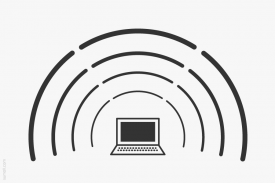In-State Telehealth Restrictions May Soon Be Eliminated
Alaska and Louisiana appear ready to give national telehealth operators like Teladoc more freedom to operate.

- The last two states to severely hinder out-of-state telemedicine companies from operating within their borders may soon be changing their ways.

While legislation eliminating certain telemedicine barriers breezed through Alaska’s House and Senate and is headed to Gov. Bill Walker’s desk, two bills in Louisiana are moving through legislative chambers and could soon become laws as well.
State Rep. John Schroder’s H.B. 570 and State Rep. Dan Claitor’s S.B. 328 have unanimously passed through their respective chambers and are headed to committees in the other chamber for a final review. If approved and signed into law, they would eliminate a state provision that providers have a physical office in the state to practice medicine, as well as tweak the definition of telemedicine – which describes the practice as “two-way video and audio transmissions” – to give providers the option to choose video or audio, or both.
Louisiana’s efforts have drawn praise from Teladoc, a national telehealth provider that does most of its business via telephone, who has noted that Alaska and Louisiana are the last two states to restrict out-of-state telemedicine.
Alaska’s S.B. 74, approved by the state Senate in March, would enable out-of-state telemedicine services as long as the providers are licensed in Alaska and register with the state. The telemedicine provision is part of a broad range of changes to the state’s MedicaId system included in the bill, and reportedly would save the state some $31 million in fiscal year 2017 and $114 million by 2022.
“We are one of only two states that does not allow telemedicine to be practiced across state lines, this bill will change that,” Alaska State Sen. Peter Micciche, R-Soldotna, said during Senate discussion of the bill, adding that telemedicine would cost about one-third of a typical primary care visit and about one-tenth of an ER visit.
The proposed legislation drew support from the Federal Trade Commission, which said it would “increase the supply of telehealth providers, enhance competition and reduce healthcare costs, thereby benefiting Alaskans, especially underserved populations with limited access to healthcare.”
Supporters are hoping for the same response in Louisiana.
“We know the FTC has weighed in in Alaska and said the residency requirement bars competition, so we can only hope that we see the same type of outcome in Louisiana,” Claudia Tucker, vice president of governmental affairs for Teladoc, told statescopp.com.
State officials say both bills must pass through legislative Health and Welfare committees before a full vote, and each has been given a better-then-75-percent chance of passage. They would then head to Gov. John Bel Edwards’ desk for a signature.
